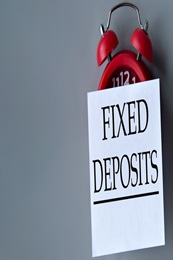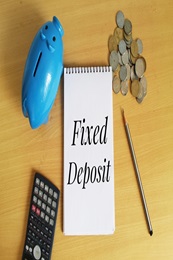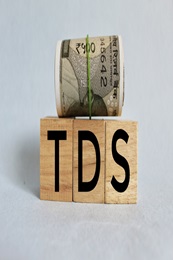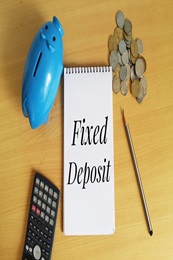Tips to Choose the Best Bank for Opening a Recurring Deposit
April 15, 2025

Are you looking to save money regularly and earn guaranteed returns? A Recurring Deposit (RD) can be an excellent investment option. RDs allow you to invest small amounts of money regularly, ultimately building up a significant corpus over time. However, with several banks offering RD accounts, it's essential to choose the best bank that suits your needs and offers attractive benefits.
In this guide, we'll walk you through how to choose a bank to open an RD so that you can make an informed decision. Let’s dive in!
Factors to Consider to Choose the Best Bank for RD
Here are a few things you may consider while opening an RD account:
Interest Rates
Every investor seeks higher returns on investments. RD interest rates are higher than Savings Accounts, almost at par with Fixed Deposits. Select a bank that offers high-interest RDs. For the uninitiated, Ujjivan SFB offers more than 8% interest on RD. Also, check if senior citizens are eligible for higher interest rates.
Bank app for Easy Account Management
Gone are the days when you had to visit a bank branch for literally every banking tasks. In this digital era, most banks have their own apps or net banking so you can manage your finances without hassle. Look for a bank that has a user-friendly app for seamless account management.
Premature RD Withdrawal Facility
You may need urgent funds in times of emergency. Instead of taking a high-interest personal loan, you can close your RD account. However, this may come with a penalty fee. Look for banks where the penalty is lower. For example, Ujjivan doesn't charge any RD premature withdrawal fee for withdrawals made after 6 months from the time of deposit.
| Features | Description |
| Minimum Deposit Amount | ₹100 and in multiples of ₹100 after that |
| Interest Rate | More than 8% |
| Tenure | 6 months to 10 years |
| Guaranteed Returns | Returns unaffected by market volatility |
| Premature Closure | Premature closure allowed. No penalty levied after 6 months |
In addition, senior citizens are eligible for an additional interest rate of 0.50% annually.
Opening a Regular Recurring Deposit account with Ujjivan SFB is quick and easy. If you're a new customer, you can visit the Ujjivan SFB website, complete the KYC requirements, enter your RD details, and pay online for your first deposit. Existing customers can also open an RD account through internet banking, mobile banking, or by visiting their nearest Ujjivan SFB branch.
By choosing Ujjivan SFB for your recurring deposit needs, you can enjoy high interest rates, flexible tenure options, and a trusted banking partner.
Factors to Consider Before Opening a Recurring Deposit Account
Before you open an RD account, there are several factors you should take into consideration:
Investment Period
The investment period is crucial in determining your RD's maturity value. RD tenure ranges from 6 months to 10 years. The interest rate would vary based on the tenure. Select a tenure that’s aligned to your investment goals. If you have short-term goals, such as saving for a vacation or buying a new gadget, opt for a shorter investment period. On the other hand, if you're saving for long-term goals like retirement or your child's education, consider a more extended investment period.
Interest Rate
Choose a bank like Ujjivan that offers high-interest RDs. With Ujjivan, you can get more than 8% in returns with RD investments subject to terms and conditions.
Let's consider an example to understand how the interest rate impacts your returns:
Suppose you invest ₹10,000 per month for three years in a bank that offers an interest rate of 8.25%. At the end of 3 years, your maturity value would be approximately ₹4,73,786.
Now, if you invest the same amount for the same duration in another bank, which offers an interest rate of 8.75%, your maturity value would increase to ₹5,02,500. This shows that even a slight difference in interest rates can significantly impact your returns.
Penalty for Premature Withdrawal
Most RDs have a penalty for premature withdrawal. This means that if you withdraw your money before the end of the investment period, you may incur a penalty fee. It's essential to consider this penalty before opening an RD account, especially if you anticipate needing access to your funds before the maturity date. Ujjivan doesn’t charge any premature RD withdrawal fee for withdrawals made after 6 months from the time of deposit.
Frequency of Deposits
RDs require periodic investments. It's essential to choose a frequency that aligns with your financial situation and cash flow. If you have a stable income and can spare a specific amount every month, opt for monthly deposits. However, quarterly deposits may be more suitable if you receive irregular income or prefer making more significant contributions less frequently.
Tax Implications
The interest earned on RDs is taxable as per the Income Tax Act 1961. The interest income is added to your total income and taxed at the applicable tax slab rate. A TDS of 10% is levied if your interest income exceeds ₹40,000 (₹50,000 for senior citizens) in a financial year.
Final Thoughts
Choosing the best bank for recurring deposit involves considering factors such as investment period, interest rates, penalties for premature withdrawal, frequency of deposits, and tax implications. By doing thorough research, you can make an informed decision that aligns with your financial goals.
Start small, dream big! Invest in Ujjivan Small Finance Bank’s Recurring Deposit and enjoy higher interest rates! Save for your long- and short-term goals with our RD and live a stress-free financial life. Start investing with just ₹100!
FAQs
1. What are the benefits of opening an RD account?
RD benefits include saving money regularly and earning guaranteed returns. RDs are low-risk investment options and can help you achieve your financial goals over time.
2. Can I withdraw my RD before the maturity date?
Yes, you can withdraw your RD before the maturity date. However, most banks charge a penalty for premature withdrawal. It's essential to consider this penalty before making a decision.
3. Are the interest earned on RDs taxable?
Yes, interest earned on RDs is taxable under the Income Tax Act 1961. It is added to your total income and taxed at the applicable tax slab rate.
4. Can I change the frequency of deposits in my RD account?
In most cases, you cannot change the frequency of deposits once your RD account is opened. During the account opening process, it's essential to choose a frequency that suits your financial situation and cash flow.
5. What happens if I miss a deposit in my RD account?
Missing RD due date would translate to losing out on potential interest returns. Ensure to have sufficient balance in your account so that you don’t miss any payments.
6. What is the minimum deposit amount required to open an RD account?
You can open an RD with a minimum monthly deposit of ₹100, making it accessible for all income groups.
7. What happens to my RD after maturity?
Upon maturity, the RD amount is credited to your linked savings account.
Latest Blogs

Telangana Housing Board & KPHB Colony: A Guide to Affordable Urban Housing in Hyderabad
March 14, 2025
As Telangana continues its rapid urbanisation journey, two key housing entities—Telangana Housing Board (THB) and Kukatpally Housing Board Colony (KPHB)—have played critical roles in shaping the state's real estate ecosystem.

Does Checking CIBIL Score Frequently Lower Your Credit Points?
April 07, 2025
Imagine you're planning to apply for a home loan, a credit card, or even a car loan. Naturally, you want to ensure your CIBIL score is in good shape before proceeding.

Explained: Can NRIs Buy an Agricultural Land in India?
April 03, 2025
Real estate investment is often a top priority for Non-Resident Indians (NRIs) looking to retain strong financial ties to India.

How to Improve Your CIBIL Score from 600 to 750: A Step-by-Step Guide
April 02, 2025
Your CIBIL score is like your financial reputation—banks check it before approving loans or credit cards. If your score is hovering around 600, you might face difficulties in securing credit or may get loans with higher interest rates.

What Happens When You Leave Your Savings Account Unused?
April 01, 2025
Imagine waking up one day to find that your hard-earned money is locked away and inaccessible. Sounds stressful, right? This is precisely what happens when you leave your Savings Account inactive for too long.





